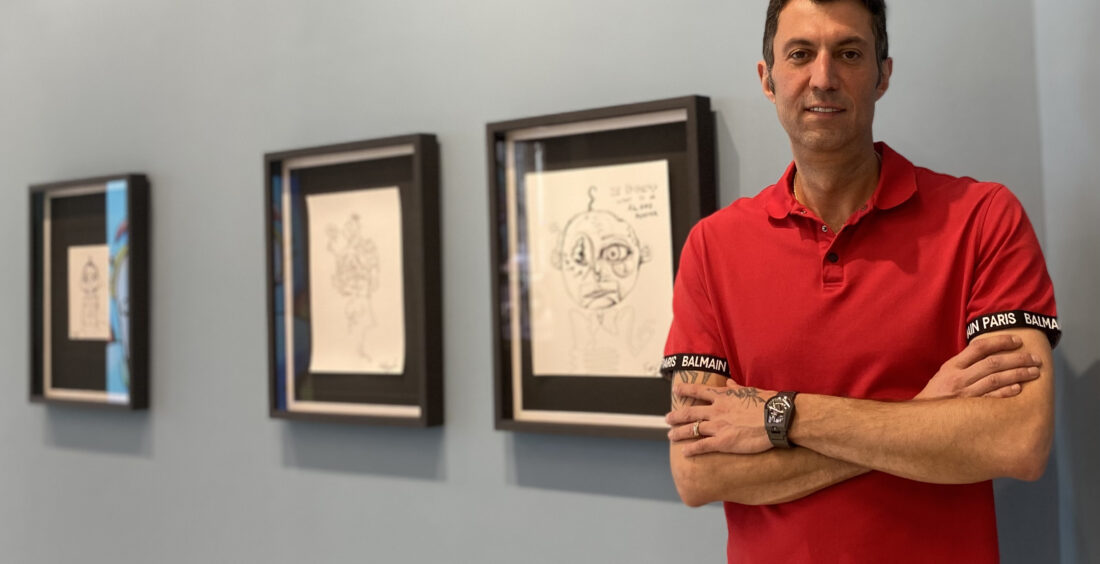Recently recognized in NFTNow’s second annual NFT100 list of influential creators and community leaders, Amir “Mondoir” Soleymani, founder of Mondoir Gallery, shared his insights on the role of artificial intelligence (AI) in the future of NFT and digital art markets and Web3.
Mondoir Gallery is a must-visit destination for art enthusiasts and collectors alike. The gallery is dedicated to bridging the gap between traditional and digital art, creating a new paradigm for art collectors and enthusiasts.
With the rise of AI and machine learning (ML), the NFT space is well-positioned to detect security threats and provide users with a safe, accessible, and trustworthy experience. Numerous prominent artists in the NFT space already use AI collaboration in their workflows, and the technology has advanced significantly in the past year with tools such as DALL-E and ChatGPT. These advancements have raised ethical questions about creating and selling AI-generated art, but the technology holds promise for creating more engaging digital experiences and innovating creative processes across all domains of art and design.
The United Arab Emirates (UAE) is quickly establishing itself as a global leader in the adoption and regulation of cutting-edge technologies such as AI and NFTs. With forward-thinking initiatives like the National Strategy for Artificial Intelligence 2031 and the UAE Council for Artificial Intelligence and Blockchain, the nation is proactively creating an AI-friendly ecosystem that encourages research, collaboration, and innovation. These efforts extend to the highest levels of government, as evidenced by His Highness Sheikh Mohammed bin Rashid Al Maktoum’s recent issuance of Law No. 9 of 2023, which regulates autonomous vehicles in Dubai. This groundbreaking legislation aims to accelerate the city’s smart mobility transformation, attract investment in the sector, and provide a regulatory environment that fosters AI use in transportation. The UAE’s rapid adaptation and commitment to supporting and monitoring emerging markets like AI and NFTs exemplify the nation’s drive to transform Emirates such as Dubai into a model for future cities and an unparalleled destination for living, working, and visiting.
“Phygital art represents an exciting fusion of creative expression, blending the tangible and the digital in ways that push artistic boundaries,” states Amir. “As artists across all genres explore this new realm, it’s crucial that we, as creators and curators, give this movement the necessary time to grow and develop while safeguarding the integrity of artists’ work. The art world has always grappled with the fine line between imitation and plagiarism, inspiration and exploitation. Embracing phygital art means navigating these challenges with care, fostering an environment where innovation can flourish and artists can truly thrive.”
The dynamic growth of legislation for AI in the NFT art space is evident, and AI-generated art can now be sold in the form of NFTs. However, ownership of AI-generated images is still subject to ongoing debate, with some generative AI software programs retaining ownership while others argue that such images belong in the public domain.
Other trends expected to dominate 2023 include NFT ticketing for live and virtual events, membership passes that unlock incentives and rewards, and the emergence of “phygital” goods that combine physical and digital properties.
As AI continues to play a pivotal role in the NFT and digital art markets, Amir “Mondoir” Soleymani and Mondoir Gallery will be at the forefront of these trends, further establishing themselves as leaders in the Web3 space.



Comments are closed.